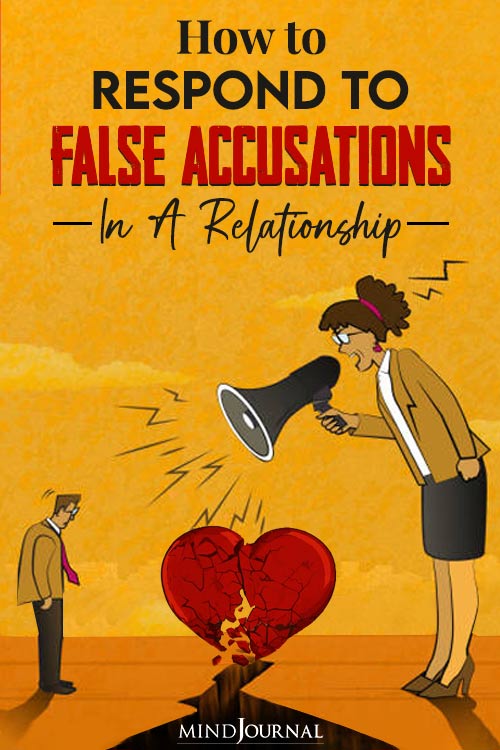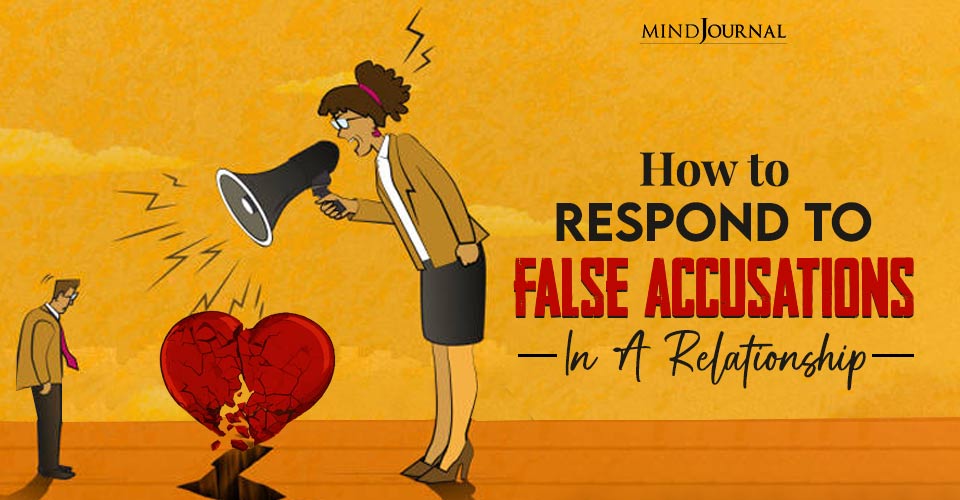Figuring out how to deal with false accusations in a relationship can be upsetting and stressful, as there has been a breach of trust. So here are some tips, if this happened with you or someone you know. These measures you help to repair the relationship.
What to do when you’re falsely accused.
You’re enjoying a meal at a restaurant and your partner accuses you of being attracted to someone nearby. There’s been an uneasy distance in your relationship and your partner says you’re having an affair. You’re late for a date and your partner accuses you of being with another man or woman.
These or similar accusations may leave you feeling powerless, angry, or confused. Some accusations are more ghastly than others. Being falsely accused of a crime is an Orwellian nightmare of unimaginable proportions. The rate of wrongful convictions in the United States has been estimated to be between 2 and 10 percent, which means between 46,000 and 230,000 of an estimated 2.3 million prisoners have been falsely incarcerated.
How to Deal With False Accusations in a Relationship
This article explores some things to consider when you’ve been falsely accused within the context of a romantic relationship.

Being human means we’re wired with a longing to be seen and understood. It’s exasperating to be accused of something we’re not doing, especially when there’s no surefire way to defend ourselves.
The perception that we’re being unfaithful can feel very real to a person who has an anxious, insecure attachment style, which means not feeling secure in a relationship. If there was a betrayal of trust in the past, it is understandable how the slightest evidence can be amplified in our partner’s psyche. Trust is a fragile thing—hard to build, easy to break.
An anxious attachment style might also be due to past attachment injuries. If we didn’t feel safely connected with our early caregivers, we might be living with the narrative that people can’t be trusted. If a parent had an affair, we may live with the fear that our partner will do the same.
If we haven’t felt securely bonded with a parent, we might view the world through the lens of not feeling worthy or deserving. We might habitually look for evidence that confirms our narrative that a secure relationship isn’t possible for us. It’s not difficult to find evidence that confirms one’s worst fears.
Related: How To Not Let An Ex’s Infidelity Sabotage Your New Relationship
Responding To A False Accusation
If your partner is accusing you of things you’re clearly not doing, here are some things to consider:
It’s important to be honest with yourself. This article assumes that what you are being accused of is indeed untrue. If there is truth in the accusation, even if partially, then it behooves you to acknowledge the truth to yourself and find a way to communicate about it in an authentic and skillful way.
You may not be having an affair, but there may be something that your partner is sensing. Perhaps you’ve become emotionally connected to someone in a way that is diluting the connection with your partner. If so, it’s understandable how your partner might leap to an untrue conclusion. If this is happening, you might explore whether there is something that is creating distance in your partnership, which may be drawing you to look elsewhere for comfort or connection.
Perhaps your partner is voicing the uneasy distance that has been growing between you—and is trying to make sense of it in the only way they know how—”you’re having an affair!” Maybe the kernel of truth is that there is an erosion of intimacy taking place.
A willingness to communicate in an open, heartfelt way may be needed to address the growing distance. Both of you might need to summon the courage to voice what you’ve been missing in the relationship or ways you’ve been feeling hurt, afraid, or neglected.
Listen To The Underlying Fears And Insecurities
Perhaps you’re feeling indignant about being falsely accused of an affair, but consider that your partner is feeling insecure in the relationship. A possible response might be something like: “I’m hearing that you’re afraid I’m having affair. I want to reassure you that I’m not… and I wonder if there’s something you’re needing from me to feel more secure with me.”

Or perhaps: “I think you’re sensing that there has been distance lately. I’ve been feeling that too.” Then share your concerns, while reassuring your partner that you love him or her and want to make more effort to show it. Then follow through!
Related: 10 Major Ways to Build Trust in Any Relationship
Remembering Who You Are
Perhaps the most important thing when being falsely accused is to stay connected to your own truth rather than allow yourself to be defined by how you’re being viewed. It is challenging to affirm ourselves and maintain our dignity when we’re not being seen accurately.
Also, remember that your partner is experiencing pain. It may or may not have much to do with you. Do your best to listen to your partner’s underlying feelings and concerns without being defensive, and communicate your own feelings and needs. Marshal Rosenberg’s Non-Violent Communication approach may be helpful here.
If it’s difficult to resolve this and it continues to cause anguish, it may be time to invest in couples therapy to hear each other better and sort out underlying issues. If your partner is unwilling to do that and your genuine reassurances keep falling flat, it may be time to see a therapist yourself to sort out how it might be best for you to proceed.
Related: Here’s How To Know If Your Partner Is Likely To Cheat Or Not
References
Grisham, J. (2018, March 14). Commentary: Why the innocent end up in prison. Chicago Tribune.
Discuss the source of the accusation with your partner. Do they think you’re lying to them or cheating on them? Seek clarification as to why. Let us know your thoughts in the comments below.
Written by: John Amodeo Ph.D., MFT Originally appeared on: Psychology Today Republished with permission









Leave a Reply
You must be logged in to post a comment.